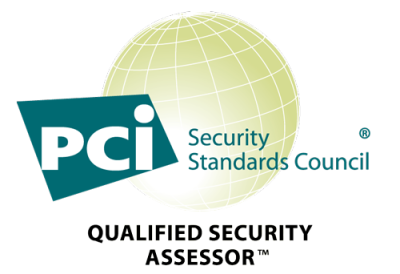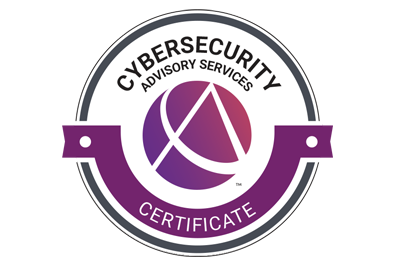Uncover Insights that Secure Long-Term Value for Your Organization
Lean into your organization’s sustained, future success. Traditionally, internal audits have been considered to be a reactive checklist. At PBMares, we strive for our internal audits to be leveraged as a strategic tool by evaluating the effectiveness of your resources and making business decisions that yield future success.
Businesses, regardless of industry, must address heightened customer expectations, rapid technology advancements, and an ever-changing regulatory landscape.
But many organizations find it challenging to sustain an internal audit function that goes beyond lowering the risk profile to add strategic value to the business. Too often, an understaffed internal audit function can begin to operate with a reactive approach rather than an intentional strategy.

William “JJ” Edmunds, Jr., CPA, CIA, CISA, MSA
Partner, Risk Advisory Services

Antonina K. McAvoy, CISA, CISM, QSA, PCIP
Partner, Cybersecurity & Control Risk Services
An intentionally designed internal control framework yields strategic benefits, efficiencies, and insights.
An internal audit, when approached from a strategic point of view, can provide peace of mind for managing today’s risks
while looking forward to anticipate tomorrow’s opportunities and changes.
Achieve Business Objectives & Protect Assets with Third-Party Objective Insights
Achieve specific business objectives with outsourced or co-sourced internal audit solutions from PBMares. A high-performing internal audit function can also strengthen and sustain organizational value through:
- Enhanced corporate governance
- More efficient and effective risk management
- Uncovering blind spots (both deficiencies & opportunities) in organizational capabilities
- Broader perspective during adoption and deployment of new initiatives
- Control processes that drive better decision-making and safeguard the business against current and future risks
With business goals as a strategic driver, internal audit insights can significantly improve your operations.
Types of Internal Audits
Operational Audits
What Is an Operational Audit?
When the goal is to ensure effective, efficient operations, operational audits help ensure that each process is in alignment with internal procedures and industry best practices.
An operational audit focuses on a process, procedure, or system to assess efficiency, effectiveness, risk management, internal controls, and compliance with policies, regulations, and industry best practices.
Other goals and benefits include:
- Uncover opportunities for improvement.
- Optimize how resources are deployed.
- Identify areas for cost reduction.
- Decrease turnaround time for business processes to elevate service delivery and customer satisfaction.
Examples of Operational Audits:
- Financial and accounting assessments
- Payroll process
- Expense disbursement process
- Procurement process
There are several other customized operational audits to fit your organization’s unique needs.

Departmental Audits
What Is a Departmental Audit?
A departmental audit concentrates on the operations, processes, and activities within a specific department. Reviewing policies and procedures within that department verifies that they align with daily processes.
The goal is to assess the department’s performance, alignment with policies, and overall effectiveness in achieving its objectives and determine how well the department is functioning and meeting its goals and responsibilities.
Observations from a departmental audit can lead to actionable recommendations and improvements that positively impact various aspects of a company.
Goals and benefits include:
- Drive operational efficiency by streamlining or eliminating redundant processes.
- Optimize resources by redistributing workloads or reassigning tasks.
- Enhance financial controls via segregation of duties.
- Improve employee productivity and development that elevates morale and strategic capabilities.
- Minimize procurement expenses by negotiating more favorable vendor contracts and/or consolidating purchases.
Examples of Departmental Audits:
- Human Resources
- Accounting
- Compliance
- Customer Service
- Supply Chain
- Marketing
There are several other customized departmental audits to fit your organization’s unique needs.
IT Audits
What Is an IT Audit?
An information technology (IT) audit focuses on the information systems and security of an organization’s IT environment.
Internal audit has a responsibility to assess and identify opportunities to strengthen IT security. Accordingly, it’s critical to involve audit professionals with the appropriate depth of technical skills and experience within the current risk environment. Our audit team is tech-oriented, deeply versed in the cyber world, and ready to act as an indispensable resource on your behalf.
We design our audits to help your organization discourage, prevent, and detect security risks:
- We compare your company’s IT security systems with stated policies and procedures to uncover risks that pose a threat to the security and integrity of your company’s network operations.
- The audit also involves analyzing the current state against where the organization is going and the minimum expected cybersecurity practices across the industry or business sector.
- In regulated industries, the review extends to compliance with all relevant laws and regulations.
The First Step
In this era of natural disasters and security breaches, safeguarding the IT infrastructure has become increasingly important. The first step is an objective audit to detect gaps that can significantly impact business continuity in the event of a security breach.
This type of audit analyzes how the organization would respond if any part of the system failed. Our team tests incident response and technical disaster recovery plans in order to deliver specific, objective, and actionable recommendations to reinforce identified weaknesses.
Regulatory Audits
What Is a Regulatory Audit?
A regulatory audit often focuses on a concern or issue with a specific regulatory regulation, law, or process. Although such an audit concentrates on one particular regulation, the audit can involve various operations and departments within the organization.
Many regulatory audits require independent testing requirements. A proactive approach to meeting BSA and AML requirements ensures that your organization can detect and correct any deficiencies, avoiding potential censure or regulatory penalties.
Internal Audit and an Increasingly Complex Regulatory Environment
Internal audit has always operated within a regulatory framework. But the degree of complexity of that framework – whether defined formally by regulations or informally by stakeholder demands — is growing.
Boards and their audit committees will need to understand these regulatory changes. They will also require assurance that appropriate steps are taken to address regulatory requirements. Internal audits will likely be called upon to work alongside other risk assurance functions, external auditors, and those responsible for corporate governance to provide this additional comfort.
Our experienced team can help your organization face challenges, anticipate and adapt for regulatory changes, and uncover opportunities along the way.
PBMares will review, monitor and assess your organization’s state of compliance with various state and federal laws and then provide a roadmap for you to maintain or improve your standing to keep pace with industry best practices.
And because PBMares has a deep roster of industry-aligned advisors, we can often uncover unexpected value during internal audit engagements.
For Financial Institutions
The increasing complexity of regulatory compliance requirements has placed a heavy burden on financial institutions.
To ensure compliance and mitigate risk, having a centralized compliance system in place is essential.
Our internal audit team is well-versed in regulatory compliance and qualified to assist financial institutions as they proactively manage new regulatory challenges and risks.
Insights from our Blog, AdvisoryWATCH





